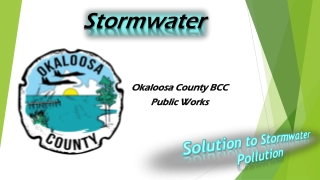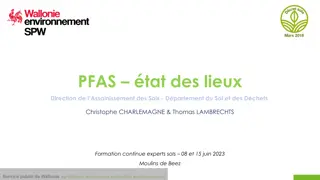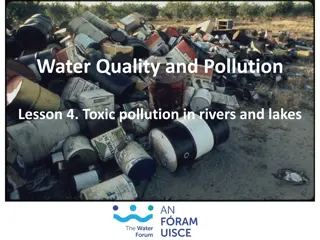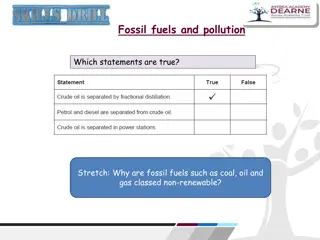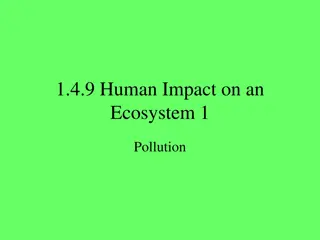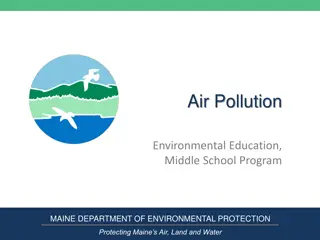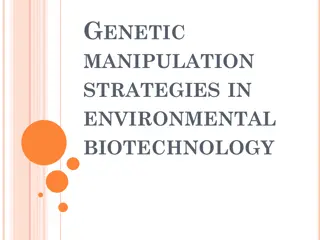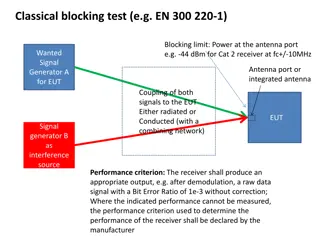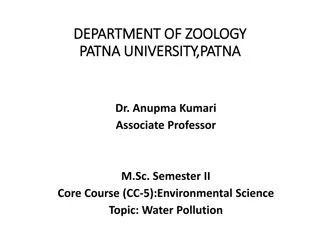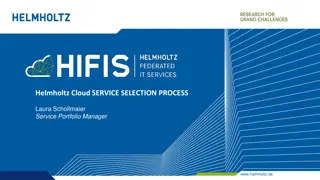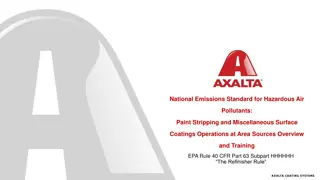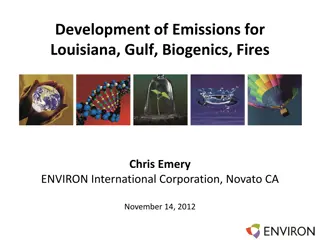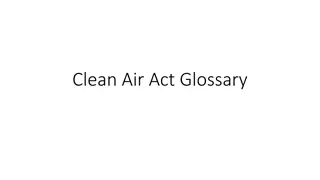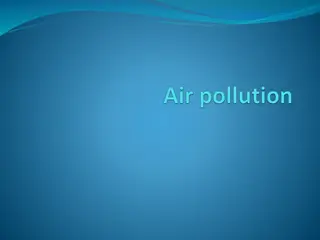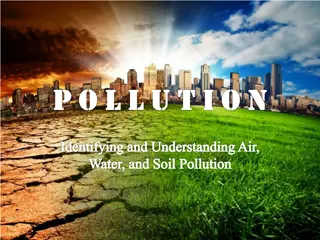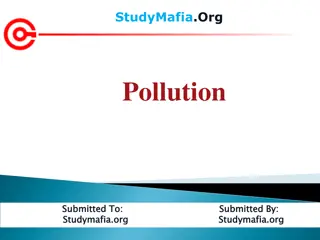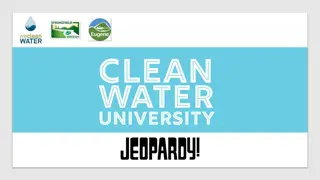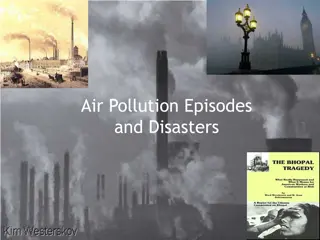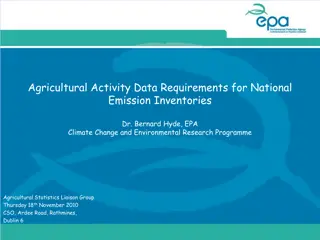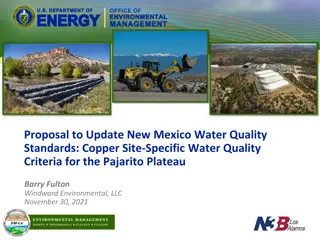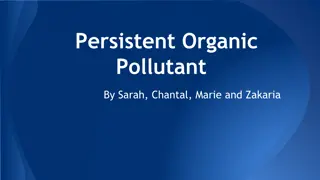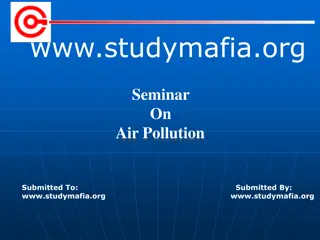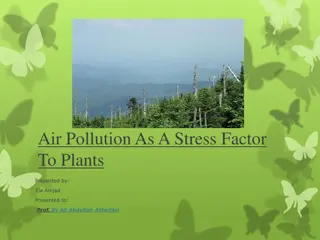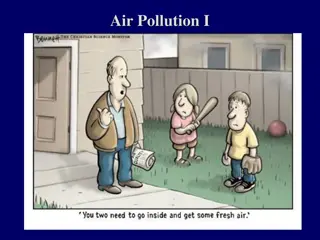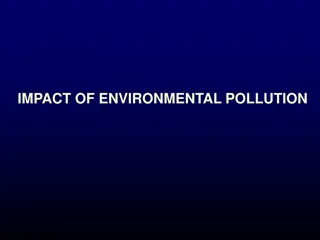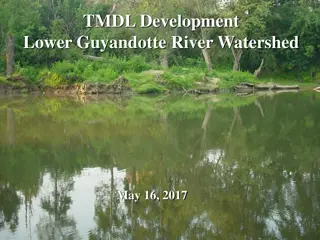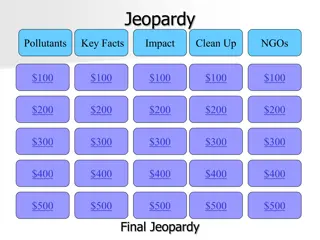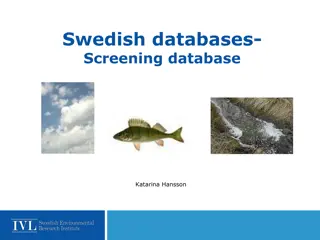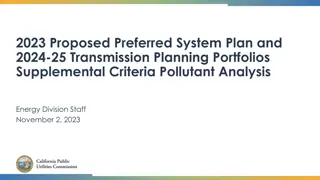Buy OBAGI Nu Derm Foaming Gel, dermsilk
OBAGI Nu Derm Foaming Gel is specially a gel-based cleanser that cleanses your skin by removing makeup, dirt, oil and other pollutants from your skin and you feel fresh. https:\/\/rb.gy\/dbndsy
2 views • 3 slides
Stormwater
Stormwater is excess water from rain/snow that can cause pollution if not managed properly. It can pick up pollutants and flow into water bodies, impacting the environment. Keeping stormwater clean involves individual actions like proper waste disposal, yard care, and car maintenance. Infrastructure
0 views • 10 slides
ASPEN Staged Separation Unit-Ops
Introduction to Aspen Staged Separation Unit Operations for the purification of desired components by removing impurities and pollutants using distillation, absorption, and stripping columns. This technology is relevant to ammonia synthesis to prevent catalyst poisoning by removing CO2 through absor
0 views • 26 slides
OBAGI Nu Derm Foaming Gel Cleanser, dermsilk
OBAGI Nu Derm Foaming Gel is specially a gel-based cleanser that cleanses your skin by removing makeup, dirt, oil and other pollutants from your skin and you feel fresh. \/\/rb.gy\/ri95jm
1 views • 3 slides
PFAS: State of the Soil Remediation Experts Training
The training session on PFAS (per- and polyfluoroalkyl substances) focuses on the complex family of pollutants, their nomenclature, major categories, and associated risks in various industries. Experts will explore the implications of PFAS contamination and receive recommendations for addressing the
0 views • 20 slides
OBAGI Nu Derm Foaming Gel, dermsilk.com
OBAGI Nu Derm Foaming Gel is specially a gel-based cleanser that cleanses your skin by removing makeup, dirt, oil and other pollutants from your skin and you feel fresh. \/\/rb.gy\/586fwe
2 views • 9 slides
Understanding Pollution and its Impacts: A Comprehensive Overview
This comprehensive guide delves into the vocabulary of pollution, toxicology, and exposure levels to toxic chemicals. It explains the different measurements for expressing contaminant levels in food and water, major types of air pollutants, primary and secondary pollutants, and the formation of phot
7 views • 37 slides
Understanding Toxic Pollution in Rivers and Lakes
Toxic pollution in rivers and lakes is a pressing environmental issue caused by various pollutants such as metals, pesticides, chemicals, and microbial contaminants. These pollutants can have detrimental effects on aquatic life, human water use, and health. Learn about the impact of toxic pollutants
2 views • 20 slides
Understanding Fossil Fuels and Pollution: A Comprehensive Overview
Fossil fuels such as coal, oil, and natural gas are non-renewable energy sources that release heat energy when burned, but also contribute to pollution when not burned completely. This leads to the release of harmful pollutants like carbon dioxide, carbon monoxide, sulfur dioxide, and carbon particu
2 views • 9 slides
Understanding Learning Intentions and Success Criteria
Learning intentions and success criteria play a crucial role in enhancing student focus, motivation, and responsibility for their learning. Research indicates that students benefit greatly from having clear learning objectives and criteria for success. Effective learning intentions should identify w
1 views • 24 slides
Understanding Pollution and its Ecological Impact
Pollution is any human addition to the environment that disrupts the ecosystem's ability to sustain life. This includes pollutants like CO2 and chemicals from various sources that harm air, water, and land. Different types of pollution such as industrial, agricultural, and domestic pollution have ad
0 views • 25 slides
Understanding Air Pollution and Its Impact on Health and Environment
Air pollution poses a significant threat to human health, the environment, and the economy. The Clean Air Act has played a crucial role in reducing air pollutants since its establishment in 1963. Criteria air pollutants such as ozone, particle pollution, carbon monoxide, lead, sulfur dioxide, and ni
1 views • 11 slides
Genetic Manipulation in Environmental Biotechnology
Genetic manipulation strategies in environmental biotechnology involve techniques like gene splicing and molecular cloning to modify genes directly. These methods have various applications such as isolating genes, producing specific molecules, improving biochemical production, creating organisms wit
0 views • 20 slides
Classical Blocking Test and Receiver Performance Criteria
Classical blocking test procedures such as EN 300.220-1 outline limits on power at the antenna port for receivers, with criteria for achieving desired performance levels without errors. Manufacturers must declare appropriate performance criteria for devices, even if certain performance metrics are n
0 views • 6 slides
Update on CAR T-Cell Therapy and Approval Criteria Changes
Recent updates regarding CAR T-cell therapy include details on patient referrals, treatments, and changes to approval criteria. The information highlights patient outcomes, referral processes, and criteria updates for various types of lymphomas. It also discusses the importance of monitoring and adj
2 views • 9 slides
Understanding Water Pollution and Its Impact on the Environment
Water pollution is a significant environmental issue caused by the contamination of water bodies with toxic substances like chemicals and microorganisms. This degradation in water quality poses risks to both humans and ecosystems. The pollutants stem from various sources such as agricultural runoff,
0 views • 59 slides
HelmholtzCloud Service Selection Process Overview
The Helmholtz Cloud Service Selection Process is detailed through service surveys, iterations, criteria types, and exclusion processes. Service providers deliver data, weighting and selection criteria are applied, and candidate services are listed based on surveys and integrations. Criteria categori
0 views • 41 slides
EPA Rule 40 CFR Part 63 Subpart HHHHHH Overview
EPA Rule 40 CFR Part 63 Subpart HHHHHH, also known as The Refinisher Rule, sets standards for hazardous air pollutants in paint stripping and surface coatings operations. The rule aims to control emissions of target hazardous air pollutants in collision centers and surrounding areas. It outlines req
0 views • 20 slides
Detailed Overview of Emissions Development in Louisiana
Emissions Processing System (EPS3) generates chemically speciated, gridded formats required by CAMx, with a focus on raw annual/ozone season county/parish-level emission inventory files and support data. Spatial and temporal profiles, along with cross-reference files, are essential for this work, co
1 views • 27 slides
Glasgow Health & Social Care Partnership Carer Support Criteria
The Carers (Scotland) Act 2016 mandates the implementation of eligibility criteria by Health & Social Care Partnerships to address carer needs effectively. Glasgow's eligibility criteria prioritize fair resource allocation based on carers' identified support needs. Key principles include universal c
0 views • 8 slides
Overview of Clean Air Act: Criteria Pollutants, NAAQS, HAPs, VOCs
The Clean Air Act establishes standards for criteria pollutants like ozone and particulate matter to protect human health. NAAQS set uniform air quality goals, while Hazardous Air Pollutants (HAPs) pose threats such as cancer. Volatile Organic Compounds (VOCs) and National Emission Standards for HAP
0 views • 26 slides
Nutrient Criteria Development Plan for High Rock Lake Summary Update
Nutrient Criteria Development in North Carolina has evolved through various stages since 2001, with the key milestones being the development of the Nutrient Criteria Implementation Plan in 2004 and the Nutrient Criteria Development Plan in 2014. The plan aims to link nutrient concentrations with the
0 views • 8 slides
Analytic Network Process: Decision Making and Feedback
Explore the Analytic Network Process for decision-making with dependence and feedback. Compare hierarchical and network models, prioritize criteria in AHP and ANP, establish car priorities based on criteria, and employ feedback to link alternatives to criteria for preference. Make pairwise compariso
0 views • 19 slides
Understanding Air Composition and Pollution
The composition of the dry atmosphere by volume, primary and secondary pollutants, and the impact of human activities on air quality are discussed. Various gases present in the atmosphere, sources of pollution, and the belief that natural elements are clean until polluted are explored. Different nat
0 views • 31 slides
Understanding Air Pollution: Causes, Impacts, and Solutions
Air pollution is a pressing issue caused by human activities like industrial emissions and transportation. It poses significant health risks to both individuals and the environment. This comprehensive guide delves into the history, primary and secondary pollutants, urban vs. rural impacts, and major
0 views • 39 slides
Understanding Pollution: Types, Causes, and Impacts
Pollution is the introduction of harmful substances or energy into the environment, leading to adverse changes in living entities. It can be caused by various factors such as chemical pollutants and energy forms like sound and light. This article discusses different types of pollution including air,
0 views • 25 slides
Understanding Water Management in Urban Areas
Explore the journey of rainwater as it traverses streets, picking up pollutants, leading to its ultimate destination. Learn about the impact of pollutants like dog poop, fertilizers, and chemicals on water bodies. Discover the importance of water quality metrics, nutrients in soaps affecting waterwa
0 views • 33 slides
Industrial Air Pollution Disasters in History
The Meuse Valley disaster in Belgium in 1930 and the Donora incident in Pennsylvania in 1948 were two significant episodes of air pollution disasters caused by industrial activities. These events led to multiple casualties and serious health effects due to toxic smog containing pollutants like SO2.
0 views • 31 slides
Agricultural Emission Inventory Data Reporting Requirements
This presentation discusses the data requirements for national emission inventories in the agricultural sector, covering greenhouse gas inventories, air pollutant inventories, National Inventory Reports, Large Combustion Plant Directive, National Emission Ceilings Directive, livestock emissions, and
0 views • 13 slides
Proposal to Update New Mexico Water Quality Standards: Copper Site-Specific Water Quality Criteria for the Pajarito Plateau
Develop a proposal for the New Mexico Water Quality Control Commission to adopt EPA's 2007 recommended copper ambient water quality criteria, focusing on the history of U.S. EPA aquatic life criteria for copper, the use of the BLM tool in aquatic toxicology, and the overview of proposed site-specifi
0 views • 10 slides
Understanding Persistent Organic Pollutants and Their Impact
Persistent Organic Pollutants (POPs) are chemical substances that remain in the environment, bioaccumulate through food chains, and pose risks to human health and the environment. Examples include pesticides like DDT, industrial pollutants such as PCBs, and unintentional by-products like dioxins. In
0 views • 30 slides
Understanding Air Pollution: Causes, Effects, and Solutions
This seminar on air pollution delves into the various pollutants found in the air, how they are measured using the Air Quality Index, and their effects on health. It discusses different types of pollutants like carbon monoxide and highlights the importance of monitoring air quality to protect public
1 views • 33 slides
Understanding ADHD Subtypes and Diagnosis Criteria in DSM-IV-TR
ADHD, as defined in the DSM-IV-TR, encompasses three subtypes: Predominantly Inattentive Type, Predominantly Hyperactive-Impulsive Type, and Combined Type. To meet diagnostic criteria for each subtype, specific symptoms must be present for a certain duration and at a degree that is maladaptive. Indi
0 views • 23 slides
Understanding Air Pollution Stress on Plants
The impact of air pollution on plants is a significant concern, affecting their physiology and overall health. Various air pollutants, such as sulfur dioxide, ozone, and nitrogen compounds, have been identified as phytotoxic agents, leading to severe or subtle effects on plant life. Detecting the ef
0 views • 21 slides
Historical Overview of Air Pollution: From London Smog to Modern Sources
Explore the history of catastrophic air pollution events dating back to 1911 in London, highlighting the impacts on public health. Learn about the major classes of air pollutants, their sources, and effects, along with key test questions related to air quality and pollution control measures. Delve i
0 views • 32 slides
Understanding the Impact of Environmental Pollution
Environmental pollution, caused by the introduction of contaminants into the air, water, and soil, has detrimental effects on ecosystems and human health. This pollution includes air pollution from various sources like combustion and industrial processes, leading to the formation of harmful pollutan
0 views • 61 slides
Understanding TMDL Development in Water Quality Management
Exploring the Total Maximum Daily Load (TMDL) development process for impaired streams, including definitions of TMDL, impaired streams, numeric criteria for pollutants like fecal coliform bacteria and selenium, and narrative criteria to protect aquatic ecosystems. The content covers the necessity o
1 views • 24 slides
Ocean Pollution Jeopardy: Key Facts and Pollutants Impact
Explore the devastating impact of pollutants on oceans through a Jeopardy-style game showcasing key facts about plastic pollution, offshore facilities, waste disposal, sea turtle endangerment, and common ocean trash items. Learn about the Great Pacific Garbage Patch, plastic island formation, and th
0 views • 27 slides
Environmental Monitoring and Screening Databases in Sweden
This content delves into the monitoring and screening databases managed by Katarina Hansson at IVL, focusing on chemicals, emissions, and national environmental data in Sweden. It covers the use of national databases, biota databases for pollutants in biological samples, and screening studies involv
0 views • 10 slides
Criteria Pollutant Analysis for California's Electric Sector Planning
The analysis focuses on minimizing air pollutants and greenhouse gas emissions, with a priority on disadvantaged communities, as directed by California's Public Utilities Commission. It includes quantifying criteria pollutants within and outside of Disadvantaged Communities (DACs) for the years 2026
0 views • 15 slides

